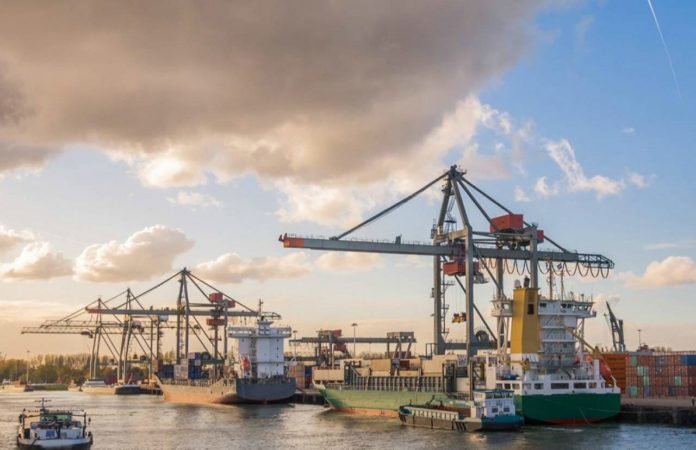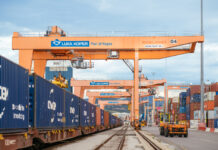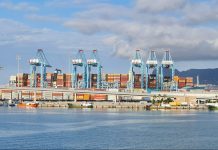
The Port of Rotterdam Authority and the emissions calculating company BigMile will develop a digital platform to identify transport-related emissions in the Dutch port.
Data included from automatic identification system (AIS), which registers all vessel movements, is combined with a TNO calculation model, enabling a precise calculation of transport sector emissions.
The digital platform will provide insight into emissions at a business location. It is also projected to provide companies with more details on carbon and other emission levels in their total transport chain, helping the port authority and business community make choices en route to a carbon-neutral port.
“The aim is to enable companies to manage carbon emission reduction in both the port and the entire supply chain that runs via Rotterdam,” said Nico van Dooren who is responsible for the Port of Rotterdam Authority’s energy transition programme.
The emissions platform constitutes a pilot project that calculates seagoing and inland vessel movements in Rotterdam, scheduled to be shared with shipping companies and terminals in the second half of 2022. Road and rail transport will be added at a later stage.
For the coming six months, the goal is to include emissions from supply chains en route to and leaving the port of Rotterdam, in order to clarify transport emissions “from door to door.”
“In the first project phase, we are focusing on area emissions in the port of Rotterdam area, from 60 kilometres offshore to the Brienenoordbrug,” stated Wouter Nering Bögel, BigMile project manager. “We are ‘charting’ sea-going and inland shipping’s actual emissions based on vessel and vehicle movements,” he added.
The platform is already proving useful in providing insight into vessel emission levels when berthed at the quay, which is useful in developing shore power projects.
“When berthed at the quay, vessels then switch off their generators and connect to shore power and The BigMile platform can clarify how much air pollution shore power connections prevent,” explained a port representative.
The Port Authority of Rotterdam is working on a series of related projects to make industry and logistics more sustainable, from determining optimal connections to the production of alternative fuels in Rotterdam, and promoting fast and efficient port call handling.




